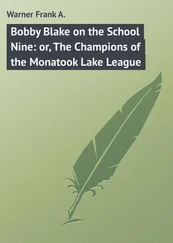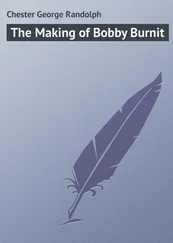“And if I wish to hear these words from your lips?” Hakimi was not happy.
“You cannot get to where I am before the time comes for me to leave. I can only tell you that what I do, I do to further our common cause.”
“You are dangerously ambitious for a man who should be kneeling to serve.”
Najid knew his father’s wealth strengthened his position and made kneeling to Hakimi unnecessary. “The details and depth of my service will become clear when you have spoken to my emissary. He will bring with him the time and place where we can meet and come to an understanding. I assure you, you will not be displeased when you know what I have done.”
“It is not for you to decide unilaterally what our brotherhood will do operationally,” scolded Hakimi.
“All I can say is that an opportunity arose that required decisive choices and swift action. There was no time to go through our usual process. If what I have done displeases you, I will kneel and accept punishment for my transgressions.”
“When can I expect this emissary?” Hakimi asked.
“He will meet your man tomorrow at noon,” replied Najid.
“See that he is not late.” Hakimi ended the call.
Najid put his soon-to-be-disposed-of phone back in his plastic, makeshift pocket. He looked down the dirt road and spotted one of his recruits hurrying by. “You.”
Jalal stopped and looked up. “Yes.”
“Come here.”
Jalal hurried over and stood in the dirt at the bottom of the hospital steps.
“Where are you from?” Najid asked.
Jalal shuffled nervously.
In a soothing voice, Najid asked, “Tell me where you are from.”
“London, sir.”
Najid eyed the recruit. “Do you have faith in Allah and our cause?”
“Of course.”
“Can you be trusted?”
“I swear to you that I am the most trustworthy of your men,” answered Jalal.
“Do you know the name, Firas Hakimi?”
Jalal nervously answered, “Yes. Everyone knows that name.”
“I have a message that I will tell you. You will deliver this message personally to him and only to him. Do you know what he looks like?”
“I have seen pictures.” Jalal puffed up with pride, “I would be honored to do this.”
“Come up here, and listen to me, then.”
Najid started constructing his lie.
Of course he was bright. The CIA wouldn’t have had such a hard-on for him if he hadn’t been. He was tall. He was good looking. He was athletic. Exactly the kind of guy they’d pick to play James Bond in the movies when Daniel Craig got too old.
But Mitch Peterson never even thought about acting. Instead, he’d spent most of his twenties enamored with his gig as a real spy. Over time his love of his job slowly turned to disappointment and acceptance as he bounced from one do-nothing post to another, in one backwater country after another.
Kampala? None of his buddies from Stanford—now making six and seven figures a year—could even find it on a map.
So he sat in his second-floor office in a building that looked way too much like a high school, gazing out over the embassy wall, watching the sun slowly fall toward the horizon. The trip down the CIA ladder of un-success had a long way to go, and was going too slowly. He checked his watch.
Why did Langley have to set up a time for a call? Why not just call? Why make him wait in his office, pretending to fulfill the duties of a Cultural Attaché, until five-thirty p.m. local time? Mitch fantasized about a microfilm message hidden in a coconut at a dead drop, or a few cryptic words recorded to audio tape that would disappear in a puff of smoke after being heard.
Mitch sighed.
The reality of encrypted phone calls and encrypted emails was so mundane.
He wanted to get out of the office, go for a run, get cleaned up, and go to dinner with his buddy Lou—the son of a Ugandan politician—and hit that new club Lou kept talking about. That was all the excitement his CIA gig in Kampala allowed for, complete with the risk of catching something from the local party girls in a country rampant with HIV.
Sure, he’d gone afield from time to time, chasing down some false alarm about an Al Qaeda something-or-other. The alarms were rare and always led to nothing but a day or two of driving on dusty roads in humid air thick enough to swim in.
When the telephone rang forty-five minutes early, he smiled, thinking it was Langley, early for a nice change. “Peterson, speaking.”
“This is Art, can I come in?”
Art McConnell, who was technically his assistant, sat at a desk outside his office, basically fulfilling all the duties of the Cultural Attaché except those where the Attaché’s physical presence was required.
“Sure, come in. I’m bored to tears waiting on my five-thirty call.”
The phone clicked.
Mitch laid his phone in its cradle and watched Art let himself in. “What’s up?”
A haggard Art McConnell crossed the office and sat down in one of the two chairs in front of Mitch’s desk. “I need you to talk to this woman I’ve got on hold.”
“What about?”
“Her kid is in some little town up north of Mbale, and she can’t get hold of him.”
“Jeez, Art. I don’t handle that stuff unless the kid is injured or dead. He’s not, is he?”
Art shook his head. “I’m sorry about this, but this woman is relentless. I’ve been on three calls with her for the better portion of the past three hours.”
“Where’s she calling from?”
“Denver, Colorado.”
Mitch looked at his watch. “Three hours? What is Denver, something like nine hours behind us?”
“Yes, I checked.”
Mitch leaned back and threw his feet up on his desk. “So she must be an early riser.”
“Yeah, and she probably already drank a pot of coffee because she talks a mile a minute.”
Mitch laughed. “That’s why you handle this kind of stuff.”
Art shook his head. “I can’t handle this one, Mitch. She’s demanding to talk with you.”
“Me, personally?”
“She asked for you by name.”
“You told her my name ?” Mitch got a little angry.
“It’s public record, Mitch. She dug around and found your name. I think she dug up information on half the staff. She certainly talked to enough of them.”
“Why?”
Art shrugged. “I guess she didn’t know who to contact initially, and she got bounced around a bit before she landed on me.”
“Why us?”
“The kid is a college student in some kind of volunteer program through a university.”
“So we’ve got a record of the kid, right?” Mitch put his feet on the floor and rolled closer toward the desk.
“Of course,” replied Art.
“And you called the contact with the group?”
“Yes. But he’s in Kapchorwa. You know how it is out in the rural parts of the country. I can’t get through. The power is probably out or something.”
“So tell her to call back.” There. Problem solved. That’s why Mitch got to sit in the boss’s chair, with an office that had an actual door, and a window with a view over boring rooftops.
“I did.”
Mitch slumped. “I guess that wasn’t successful, or you wouldn’t be sitting in here now.” Mitch turned toward his computer.
“I told you, she’s relentless. She’s not going to stop nagging until she talks to somebody with an important-sounding title. I honestly think that if I have to get back on the phone with her, I might start jamming pencils into my eye.”
Mitch hung his head and sighed again. He hated talking to families of kids who weren’t responsible enough to call or send an occasional email. Sometimes he felt like a babysitter—just a damn babysitter. “ Sharp pencils?”
Читать дальше












